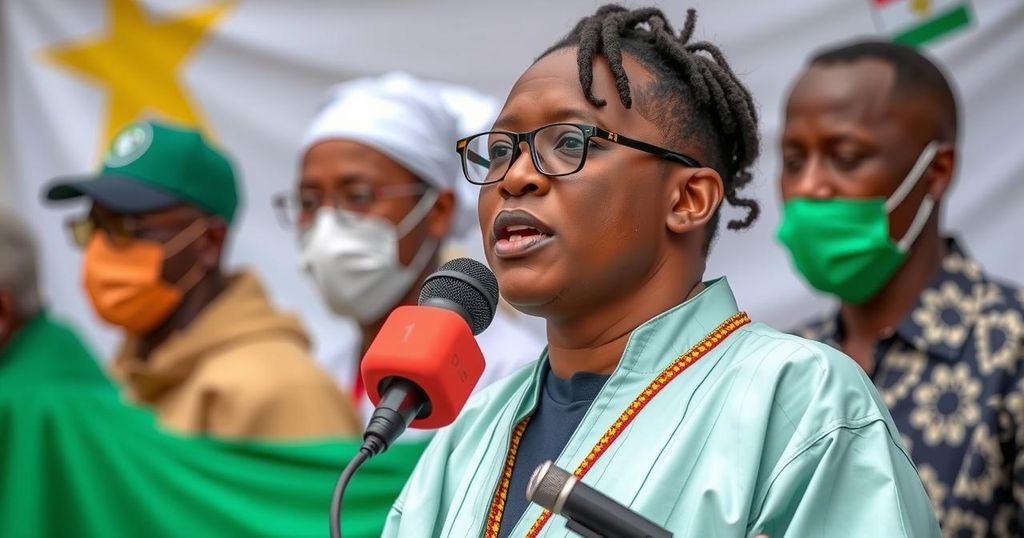Chadian opposition parties are demanding the cancellation of the December 29 elections, claiming widespread boycotts that undermine legitimacy. The elections are seen as a continuation of the transitional government after the late President Déby. The government contends that the electoral process was fair, while analysts warn of potential unrest if opposition claims are ignored.
Chad is currently experiencing political unrest as opposition groups demand the cancellation of the upcoming elections scheduled for December 29. They criticize the transitional government, arguing that the elections have been boycotted and lack legitimacy. Meanwhile, the National Agency for the Management of Elections (ANGE) has commenced vote counting, asserting that the electoral process has been conducted transparently despite allegations of irregularities. Opposition leaders claim that voter turnout was significantly lower than reported, expressing fears of escalating tensions in the nation if a new transition is not established.
The recent elections were intended to conclude Chad’s transitional governance following the death of long-time President Idriss Déby in April 2021. His son, Mahamat Idriss Déby, who has been in power since his father’s demise and was proclaimed the winner of the presidential election in May, continues to face intense scrutiny and criticism. The opposition argues that their boycott, which they claim was observed by over 90% of voters, highlights widespread dissatisfaction with the current regime and a demand for democratic reforms. In light of the ongoing political tension, calls for a new transition are becoming more pronounced, emphasizing reconciliation and dialog as pathways to greater stability.
Chad’s political landscape remains tense, marked by challenges to Deby’s government. Analysts have pointed out the substantial claims made by opposition figures regarding alleged electoral malpractice, including accusations of ballot stuffing and vote manipulation to favor Deby’s ruling coalition. Several political actors within Chad are urging authorities to reconsider the legitimacy of the electoral process and to acknowledge the calls for democratic engagement from a disenchanted electorate.
“Chadians are angry because Deby is a dictator who silences all critical voices,” stated Avocksouma Djona, a spokesperson for the Political Actors Consultation Group (GCAP). In a similar vein, Succes Masra, president of The Transformers party, emphasized the necessity of a new transitional government designed to foster truth, dialogue, and reconciliation.
Chad has been under a transitional government since the death of Idriss Déby Itno, who ruled the country for over three decades. His son, Mahamat Idriss Déby, assumed power following his father’s death. The transitional government was meant to stabilize the country and organize elections after nearly three years. However, opposition parties argue that the electoral process has been marred by significant irregularities and boycotts, reflective of a broader discontent with the ruling party’s practices. This political climate is complicated by fears of violence and instability, exacerbated by the opposition’s demands for a complete governmental overhaul.
In summary, the political situation in Chad remains precarious, with significant divisions between the ruling government and opposition forces. The upcoming elections are clouded by allegations of irregularities, with calls for their annulment gaining traction among activists and political leaders. The prevailing narrative suggests that without addressing the concerns raised by the opposition, Chad may face further unrest and inability to establish a stable, representative government in the future.
Original Source: www.voanews.com







